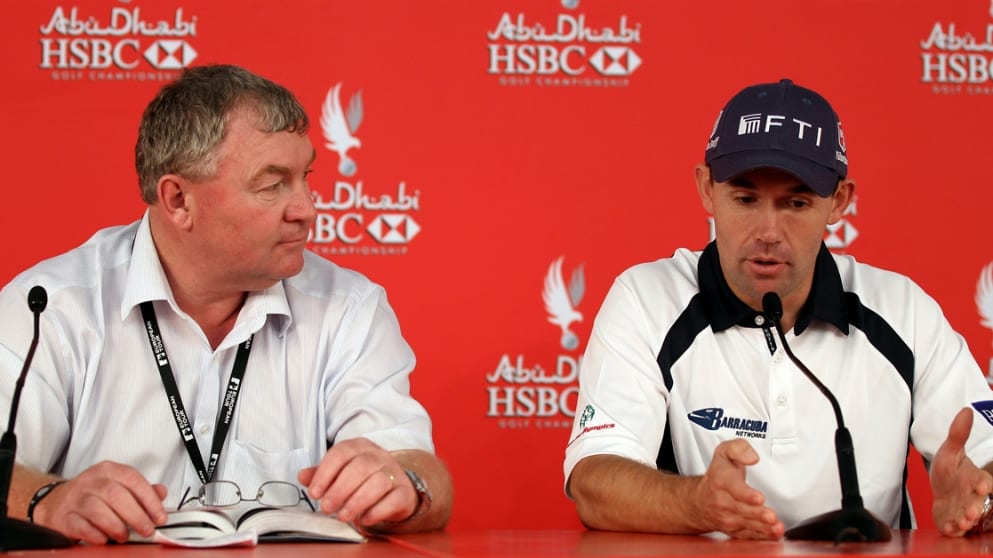The R&A and the USGA have announced a new interpretation of the Rules that apply in limited circumstances not previously contemplated by the Rules of Golf where disqualifications have been caused by score card errors identified as the result of recent advances in video technologies.

This revision to Decision 33-7/4.5 addresses the situation where a player is not aware he has breached a Rule because of facts that he did not know and could not reasonably have discovered prior to returning his score card. Under this revised decision and at the discretion of the Committee, the player still receives the penalty associated with the breach of the underlying Rule, but is not disqualified.
In revising the decision, The R&A and the USGA confirm that the disqualification penalty still applies for score card breaches that arise from ignorance of the Rules of Golf. As such, this decision reinforces that it is still the responsibility of the player to know the Rules, while recognising that there may be some rare situations where it is reasonable that a player is unaware of the factual circumstances of a breach.
This revision to Decision 33-7/4.5 is effective immediately.
“For some time we have been concerned that, in certain limited circumstances, disproportionate disqualification penalties have been required by the Rules,” said Peter Dawson, Chief Executive of The R&A. “This carefully considered decision reflects our desire to ensure that the Rules of Golf remain fair and relevant in the changing environment in which the game is played today.”
“This is a logical and important step in our re-evaluation of the impact of high-definition video on the game,” said Mike Davis, executive director of the USGA. “We collectively believe that this revised decision addresses many video-related issues never contemplated by the Rules of Golf.”
The complete language of the revised decision follows.
33-7/4.5 Competitor Unaware of Penalty Returns Wrong Score; Whether Waiving or Modifying Disqualification Penalty Justified
Q. A competitor returns his score card. It later transpires that the score for one hole is lower than actually taken due to his failure to include a penalty stroke(s) which he did not know he had incurred. The error is discovered before the competition has closed.
Would the Committee be justified, under Rule 33-7, in waiving or modifying the penalty of disqualification prescribed in Rule 6-6d?
A. Generally, the disqualification prescribed by Rule 6-6d must not be waived or modified.
However, if the Committee is satisfied that the competitor could not reasonably have known or discovered the facts resulting in his breach of the Rules, it would be justified under Rule 33-7 in waiving the disqualification penalty prescribed by Rule 6-6d. The penalty stroke(s) associated with the breach would, however, be applied to the hole where the breach occurred.
For example, in the following scenarios, the Committee would be justified in waiving the disqualification penalty:
• A player makes a short chip from the greenside rough. At the time, he and his fellow-competitors have no reason to suspect that the player has double-hit his ball in breach of Rule 14-4. After the competitor has signed and returned his score card, a close-up, super-slow-motion video replay reveals that the competitor struck his ball twice during the course of the stroke. In these circumstances, it would be appropriate for the Committee to waive the disqualification penalty and apply the one-stroke penalty under Rule 14-4 to the player’s score at the hole in question.
• After a competitor has signed and returned his score card, it becomes known, through the use of a high-definition video replay, that the player unknowingly touched a few grains of sand with his club at the top of his backswing on a wall of the bunker. The touching of the sand was so light that, at the time, it was reasonable for the player to have been unaware that he had breached Rule 13-4. It would be appropriate for the Committee to waive the disqualification penalty and apply the two-stroke penalty to the player’s score at the hole in question.
• A competitor moves his ball on the putting green with his finger in the act of removing his ball-marker. The competitor sees the ball move slightly forward but is certain that it has returned to the original spot, and he plays the ball as it lies. After the competitor signs and returns his score card, video footage is brought to the attention of the Committee that reveals that the ball did not precisely return to its original spot. When questioned by the Committee, the competitor cites the fact that the position of the logo on the ball appeared to be in exactly the same position as it was when he replaced the ball and this was the reason for him believing that the ball returned to the original spot. As it was reasonable in these circumstances for the player to have no doubt that the ball had returned to the original spot, and because the player could not himself have reasonably discovered otherwise prior to signing and returning his score card, it would be appropriate for the Committee to waive the disqualification penalty. The two-stroke penalty under Rule 20-3a for playing from a wrong place would, however, be applied to the player’s score at the hole in question.
A Committee would not be justified under Rule 33-7 in waiving or modifying the disqualification penalty prescribed in Rule 6-6d if the player’s failure to include the penalty stroke(s) was a result of either ignorance of the Rules or of facts that the player could have reasonably discovered prior to signing and returning his score card.
For example, in the following scenarios, the Committee would not be justified in waiving or modifying the disqualification penalty:
• As a player’s ball is in motion, he moves several loose impediments in the area in which the ball will likely come to rest. Unaware that this action is a breach of Rule 23-1, the player fails to include the two-stroke penalty in his score for the hole. As the player was aware of the facts that resulted in his breaching the Rules, he should be disqualified under Rule 6-6d for failing to include the two-stroke penalty under Rule 23-1.
• A player's ball lies in a water hazard. In making his backswing for the stroke, the player is aware that his club touched a branch in the hazard. Not realising at the time that the branch was detached, the player did not include the two-stroke penalty for a breach of Rule 13-4 in his score for the hole. As the player could have reasonably determined the status of the branch prior to signing and returning his score card, the player should be disqualified under Rule 6-6d for failing to include the two-stroke penalty under Rule 13-4. (Revised)













